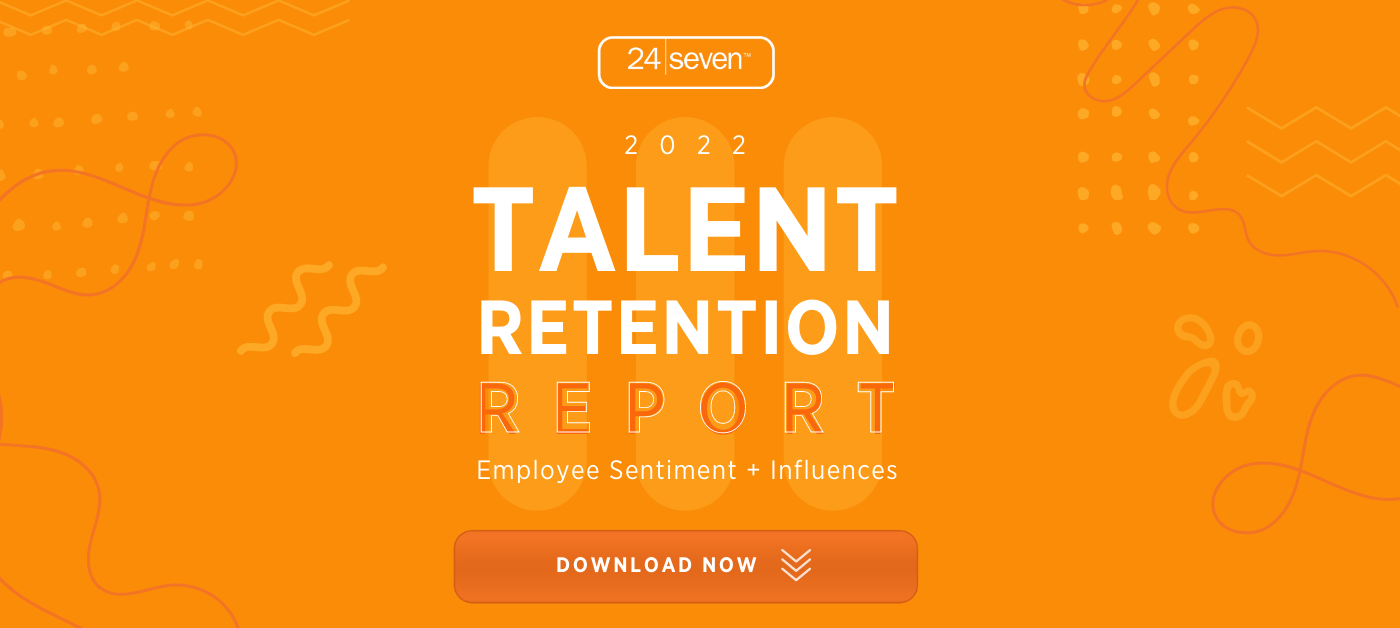What exactly is an exit interview? An exit interview is an interview held with an employee about to leave an organization, the objective being to better understand the employee’s reason for leaving and their experience working with the company. The insights gleaned can be used to help managers make improvements and bolster overall retention efforts.
Talent with specialized skills are always in demand and difficult to replace, particularly in the creative, marketing, digital, beauty, fashion, and retail sectors. So, when you do lose an employee, the exit interview provides an opportunity to engage in one of the most honest and important conversations you can have.
Too often, exit interviews are seen as just an HR box to check once an employee submits notice. Neglecting to utilize these conversations to their full potential is a big missed opportunity for employers.
Here are some tips on how organizations can make the most of employee exit interviews:
WHO SHOULD GET AN EXIT INTERVIEW?
Employees leave for a wide variety of reasons. Sometimes it’s because an employee is truly unhappy in the role or with the organization, and sometimes it’s for a great new opportunity that unexpectedly landed in their lap. In other situations, a departure is due strictly to personal reasons and there’s nothing an organization could have done to prevent it.
But no matter the cause, every employee leaving should be extended the opportunity to complete an exit interview.
While some leaders believe only a company’s “top performers” should receive an exit interview, failing to conduct interviews with those who don’t have “star status” could send a signal to the rest of your company that only some people’s views are worth listening to.
To get the most holistic understanding of your department or organization, strive to gather insights from every employee who has made the decision to leave, not just select individuals.
WHO SHOULD CONDUCT THE EXIT INTERVIEW?
Creating a safe space where the departing employee can feel comfortable being completely honest is critical to the success of the exit interview. As such, deciding who should conduct the interview should be carefully considered. Oftentimes, employees may not feel they can be totally candid with their direct supervisor. Most often, a company HR representative would handle the exit interview process. But if internal leaders have the bandwidth, it could be beneficial to have the employee’s direct manager’s supervisor conduct the interview.
But whoever conducts the interview should listen more than they talk. The interviewer’s goal should not be to defend the company or the actions of other employees. They should be patient, friendly and guide the conversation rather than lead it.
WHAT SHOULD THE GOAL OF AN EXIT INTERVIEW BE?
The ultimate objective of an exit interview should be to gather information about the factors surrounding the employee's resignation. From there, the information can be carefully evaluated and, if permitted, shared among key stakeholders, and when necessary, used to make organizational changes to help prevent others from leaving for similar reasons.
Breaking this down further, here are some key things employers can learn from exit interviews:
Understand HR-related issues: Matters related to compensation, health benefits, paid time off, parental leave, remote work policies, and the onboarding process are just a handful of the issues that might prompt employees to leave. And while some of these policies may be tough to change, such as health benefits, for example – there may be more flexibility in other areas. For instance, if you notice a trend where more people are pointing to a less-than-desirable amount of paid time off as a reason for leaving, perhaps your organization can revisit the policy and add more time for existing employees as well as new hires
Learn how employees feel about the work: This can include the basic responsibilities of the position and the expected workload, if they felt like their work contributed to the larger goal, the working conditions, company culture, and the team they worked with. Did the work foster engagement? Did the team function efficiently? Was there healthy collaboration during projects? Did the work frequently lead to burnout?
Hear about the manager’s leadership style: There is an old saying, “People don’t leave jobs, they leave bosses.” The exit interview is an opportunity to find out if this is true for your organization and can help a company identify behaviors that might be contributing to toxicity in the workplace, such as favoritism, constant micromanaging, or a general lack of support. But it could also shed light on managers who are helping employees grow and succeed by providing ample feedback, fostering community, and prioritizing communication. While it is important to uncover hidden challenges, it is just as important to ask questions that will help you better understand what your organization, and your managers, are doing right.
Understand the competitive landscape: Exit interviews offer a chance to see what competition your organization is up against. How are other companies paying? What benefits and perks do they offer? How much paid time off do they give new employees? How do they position career pathing and advancement opportunities? Do they offer more flexible work arrangements? These are just some of the insights you can learn about the organizations that are taking away some of your employees.
WHAT ARE SOME EXIT INTERVIEW QUESTIONS?
With the goals mentioned above in mind, here are some sample exit interview questions:
What do we need to improve as a company?
What could the company have offered to make your job more rewarding?
What would it have taken to convince you to stay?
What did we do well?
Do you feel that you were supported by your manager?
Did you feel that you received meaningful professional development opportunities?
Did you feel that your immediate team worked collaboratively together towards a common goal?
What’s the hardest thing about working here?
WHAT SHOULD YOU DO WITH THE RESULTS?
The exit interview is one of the most important tools organizations have at their disposal to get ahead of employee retention. While you may not be able to convince the employee leaving to stay, you can use the valuable information they provide to hopefully prevent others from following suit.
Still, it’s important to note that the opinions of departing employees are just that, opinions. A single piece of feedback or reason given for one employee leaving does not necessarily mean there needs to be institutional changes. However, if managers start to see consistent themes in the reasons why people are leaving, it’s important to take a deeper look at those uncovered challenges.
Once an exit interview is complete, consider sharing the notes across company leadership as policies allow. Be mindful that exit interviews can raise confidentiality or even legal issues, so it is critical that whoever is involved in the process fully understands what can – and can’t – be shared.
When necessary, the most important step is to take this information and act on it. There might be parts of the exit interview that are hard to hear, perceptions about team members not pulling their weight, unsupportive managers, toxic company culture, and so forth.
All this information, while it might make for difficult listening, should be seen as a strategic opportunity to improve how your department or organization is run. But to get the most out of exit interviews, you must commit to making the changes that are needed.
OFFER APPRECIATION (AND KEEP THE DOOR OPEN)
Regardless of why an employee is leaving, do your best to make sure that they know they were heard in the exit interview and that you appreciate their willingness to share their thoughts, opinions, and insights.
And if a strong performer is leaving, remember that you can use the exit interview as an opportunity to communicate that you will do everything in your power to keep the door open, should they decide they’d be interested in returning at some point.
HOW 24 SEVEN CAN HELP
While we can’t lead exit interviews for you or make structural changes within your organization, we can help build your team back up if you’ve lost just one employee or several.
The specialized recruiters at 24 Seven have access to a wide pool of highly skilled professionals in creative, marketing, digital, fashion, beauty, and retail sectors looking for full-time and freelance work. Our recruiters are experts in the ever-changing job market and can help you understand how to remain competitive in the current landscape. Contact one of our recruiters today and let us handle the hiring heavy lifting.
We also have a variety of blog posts that dig into how organizations can better manage their teams, from how to prioritize onboarding to guarding against burnout. This information can hopefully give you the tools you need to help ensure that your exit interviews are few and far between.

